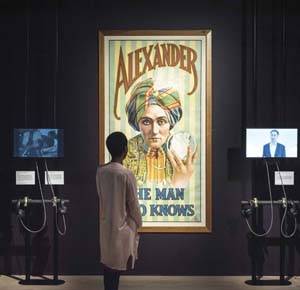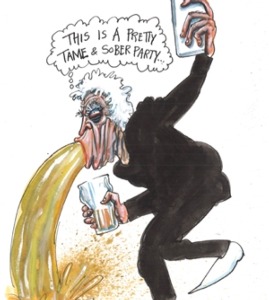
This article is a preview from the Spring 2019 edition of New Humanist
She Called Me Woman: Nigeria’s Queer Women Speak (Cassava Republic) by Azeenarh Mohammed, Rafeeat Aliyu and Chitra Nagarajan (eds)
“I’m so very excited because I’ve never told anyone my story before.” So says one of the 25 queer women whose diverse stories are brought together in this new collection. Published last year by an Abuja-based independent publisher, the collection is based on first-hand accounts. Raw, messy, brimming with life, these stories jump off the page. The trio of editors travelled across the country to find women of different sexual and gender orientations, ethnicities and religions, not to provide a “comprehensive picture” but “snapshots of histories, experiences and realities”.
The book’s very existence is cause for celebration. As the editors remark in their introduction, “talk of queerness is everywhere”, yet in Nigeria and abroad, those under discussion are too often missing from the conversation. As a country that is racing towards the role of cultural and economic powerhouse of Africa, Nigeria is in a state of self-examination, and She Called Me Woman is an intervention into a frenzied public debate. The collection is clearly a rebuttal to the Same Sex Marriage Prohibition Act of 2014, a brutal attack on queer rights. Yet it is also multi-layered and intimate, challenging the focus placed by Nigerian society on marriage and kids. She Called Me Woman offers a space in which transgressive stories of love, lust and longing can be heard on their own terms.
One of the aims of the collection is to show that these “transgressions” are nothing new. The editors see the book as combating various forms of erasure, including “the rich histories and cultural traditions of diverse sexualities and gender norms in the land known as Nigeria”.
We hear from a lesbian, happily out to her family, who tells us how in Igboland there are multiple ways in which a woman can marry another woman. Western readers are reminded not to bring our prejudices to the recurring accounts of rape and violence, forced outings and medical treatment, just as we should not be surprised when one of the narrators proudly describes the lively pick-up scene in Jos in the chapter “Everybody in J-town is Now a Lola [lesbian]”.
There are limitations to the first-hand accounts. Other anthologies such as 2013’s Queer African Reader or Ashwini Sukthankar’s Facing the Mirror: Lesbian Writing from India have used a mix of poetry, prose and essays to present stories of queer life from multiple angles. In contrast, some of the chapters in She Called Me Woman read a little too much like lightly edited transcript.
Yet this is the first anthology of its kind to focus on queer Nigeria. Staying true to the voices lends the collection weight and authenticity. A review in Nigeria’s Guardian, a popular daily newspaper, framed the struggles portrayed in the collection as part of the broader “Nigeria problem”: the lack of support for the “dreams and ambitions” of the country’s citizens. All of the narrators in She Called Me Woman are under 40. The book can thus be seen as belonging to a new generation of Nigerians who are navigating family and social expectations, as well as corruption and inequality, whether they are straight or queer.
She Called Me Woman is a milestone on a journey. The fact that the women are anonymous tells us something of the way still to go. Around the same time as the book came out, lesbian teen romance movie Rafiki was banned in Kenya, despite critical acclaim. Securing visibility and acceptance is an uphill fight. Yet ultimately this collection leaves the reader feeling gratefully surprised. It’s a sentiment that the editors share. “We expected to find despair and loss,” they say, “and instead we found joy and resilience.”

